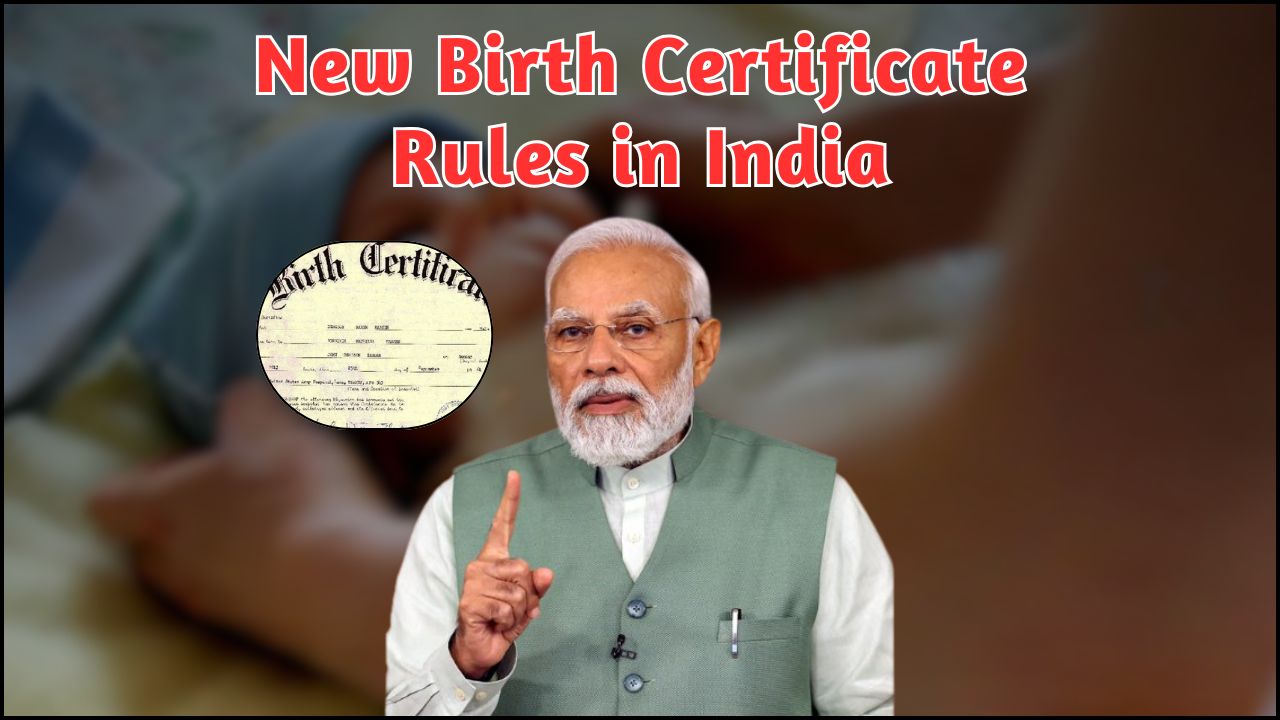In a move that affects every Indian citizen, the government has introduced major changes to the birth certificate rules under the Registration of Births and Deaths (Amendment) Act, 2023. These changes came into effect from October 1, 2023 and aim to make documentation easier, improve digital services, and simplify identity verification.
Whether you are a parent, student, job seeker, or senior citizen, these changes will impact your life.
What’s New in the Birth Certificate Rules?
The government has made the birth certificate a key identity document. Now, it will act as the main proof for your date and place of birth.
Also Read:
 New Birth Certificate Rules Announced: Big Changes Every Indian Parent and Citizen Must Know About!
New Birth Certificate Rules Announced: Big Changes Every Indian Parent and Citizen Must Know About!
Some important updates include:
Single Source Document: A birth certificate will now be the main document for confirming birth details everywhere.
Digital Integration: All states must link their civil registration systems to the central government’s database.
Mandatory Digitization: Every birth record must be digitized and stored securely.
Wider Acceptance: Digital birth certificates are now valid for many services like school admissions, passport applications, and more.
One Nation, One Birth Certificate – Key Highlights
The government has launched the “One Nation, One Birth Certificate” initiative with the following features:
A unified national database for real-time verification of birth details
Mandatory digitization of all birth records across India
Birth certificates are now compulsory for several important services
Stronger data security and easy public access to birth records
Where Birth Certificates Are Now Mandatory
Under the new rules, you must show a birth certificate for:
| Service/Document | Requirement Status |
|---|---|
| School or College Admission | Mandatory |
| Voter ID Registration | Mandatory |
| Driving License Application | Mandatory |
| Passport Issuance | Mandatory |
| Aadhaar Card Enrolment | Mandatory |
| Government Job Applications | Mandatory |
| Marriage Registration | Mandatory |
| Property Registration/Inheritance | Mandatory |
This shows how important it is now to have a valid and updated birth certificate.
Impact on Parents and Citizens
These new rules will make life easier but also require citizens to be more careful with their birth records:
New Parents: Hospitals will now upload newborn details directly to the central system for faster birth certificate issuance.
Adults Without Certificates: Those without a birth certificate must apply quickly through municipal offices or online portals.
NRIs and Migrants: Digital certificates can be accessed globally, reducing the need for physical copies.
How to Apply for a Digital Birth Certificate
Applying is simple and digital-first. Here’s how:
Visit the Official Website: Use your state’s civil registration portal.
Register or Log In: Create an account with your mobile number or email.
Fill the Application: Provide birth details like child’s name, parents’ names, and place of birth.
Upload Documents: Attach hospital discharge papers, parents’ ID proofs, etc.
Track Status: Monitor your application progress online.
Download Certificate: Once approved, download the digital certificate for use.
Benefits of the Updated System
The new system brings many advantages:
Simplified Verification: One document is enough for various services.
Faster Services: Quicker processing for jobs, passports, and school admissions.
Accuracy and Transparency: Centralized records reduce mistakes and fraud.
Easy Access: Get your birth certificate online anytime.
Boost to Digital India: Supports better governance and public services.
Old System vs New System – A Quick Comparison
| Feature | Old Rules | New Rules |
|---|---|---|
| Verification | Manual, multiple documents | Single, unified document |
| Data Management | Local municipal bodies | Centralized digital system |
| Usage | Limited | Required for many services |
| Access | Physical copies only | Digital, real-time access |
| Fraud Prevention | Low security | High security with authentication |
| Integration | Inconsistent | Fully integrated |
Don’t Have a Birth Certificate Yet? Here’s What to Do
If you do not have a birth certificate:
Visit your local municipal office with supporting documents (hospital records, school certificates, or an affidavit).
Submit an application for delayed registration.
After approval, you will receive a digital birth certificate linked to your Aadhaar and PAN.
Expert Opinions and Government Statements
Government officials say the new rules are part of efforts to improve the “Ease of Living” for citizens. Over 90% of states and union territories are already connected to the central system.
Experts have praised the move but stress the need for greater awareness in rural areas to ensure everyone benefits from the changes.
Final Thoughts: A Big Step Toward Digital India
The new birth certificate rules mark a major change in identity management in India. Making the birth certificate a key document for many services is a smart step towards “One Document, One Identity”.
It is important for every Indian citizen to check and update their birth records quickly to enjoy faster, easier, and more secure services








